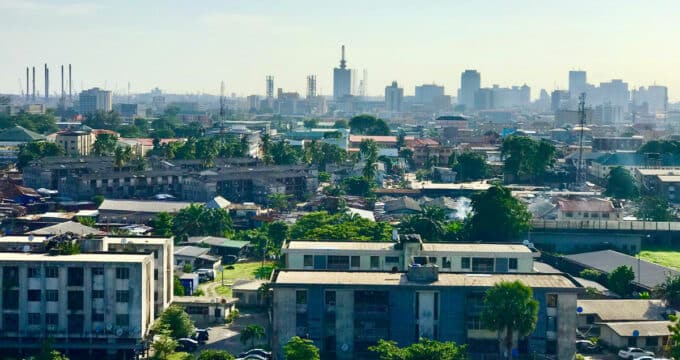Canada expands biometric requirements for study permits
for applicants for visitor visas, work permits, study permits, or permanent residence. Effective 31 July 2018, all applicants from countries in Europe, the Middle East, and Africa, for any of these visa classes, will need to supply additional biometric information – specifically fingerprints and a photo. As of 31 December 2018, the programme will again be extended to applicants from Asia, Asia Pacific, and the Americas. The move marks a notable expansion of Canada’s current biometrics programme, which has to the point been constrained to nationals from only 30 countries. “Biometrics collection is recognised globally as a reliable, accurate tool for establishing identity,” says an accompanying statement from Immigration, Refugees and Citizenship Canada (IRCC). “More than 70 countries around the world are using biometrics in their immigration programmes.” IRCC explains that visa applicants will receive a Biometrics Instruction Letter, which will advise as to how and where to supply any required biometric information. This will often be done via the closest available Visa Application Centre (VAC). There are currently 137 VACs in 95 countries around the world which accept biometric information, and this year the government is moving to further expand the VAC network, in part to accommodate the wider application of biometric processing. Through the rest of this year, additional VACs will open in the following locations:
- By mid-September 2018: Kigali, Rwanda; Stockholm, Sweden; and Tel Aviv, Israel
- In early November 2018: Athens, Greece; Berlin, Germany; Lyon, France; and Vienna, Austria
- In early December 2018: Antananarivo, Madagascar and Cape Town, South Africa
IRCC will open additional VACs through 2019 as well, the locations to be announced. “To facilitate the increased demand for biometrics, Canada is increasing its Visa Application Centre presence in the next two years,” said Immigration, Refugees and Citizenship Minister Ahmed Hussen. “By November 2019, there will be at least 157 Centres in 105 countries.” Also of note, IRCC will accept biometric information on a temporary basis at the following diplomatic posts through November 2018:
- From July 31 to mid-September 2018: In Stockholm, at the Embassy of Canada to Sweden, for applicants from Sweden and neighbouring countries
- From July 31 to early November 2018: Canadian embassies in Athens, Greece; Berlin, Germany; and Vienna, Austria for applicants from Greece, Germany, Austria and neighbouring countries.
- From July 31 to early November 2018: In a temporary commercial space in Lyon, France for applicants from France and neighbouring countries.
Exemptions and biometrics on file
There are a number of exemptions noted where applicants will not be required to supply biometric information. These include:
- Children under the age of 14
- Applicants over the age of 79
- Nationals coming to Canada as tourists from visa-exempt countries who hold a valid Electronic Travel Authorization
In addition, biometrics need to only be supplied every ten years and will be held on file for that period.
A more difficult process?
Even so, some critics have pointed out that the extended biometric programme will represent an additional barrier in an already complex system. A related investigation by the Globe & Mail highlights that Canada’s competitiveness in terms of visa policy is lagging, even before the new biometric requirements that will be introduced this year. The Globe references an annual study of travel and tourism competitiveness by the World Economic Forum. The WEF study ranks Canada in the #9 position, out of 136 countries in the study, in terms of overall tourism competitiveness. However, the same study ranks Canada as 120th (again, in a field of 136 countries) in terms of the competitiveness of its visa policy. The WEF analysis, notes the Globe, effectively places Canada’s visa requirements “among the most complex and opaque in the world.” The broader context here is the dramatic increase in the volume of applications for Canadian visas in recent years. IRCC reports that a 35% increase alone for January–June 2017 compared to the same period in 2016. IRCC indicates as well that the rejection rate for Canadian study permit applications increased marginally over those two years, from 30% in 2016 to 32% in 2017. But the Globe points out that those 2016/17 rates are up more significantly from 2012, when the overall rejection rate for study visa applications was 26%. “The soaring number of visa applications could be leading to mistakes and arbitrary rejections in an overly hasty processing system,” says the report. “The trend [of increasing rejection rates] has huge implications for Canada’s relationship with the world…Entry decisions are left to mid-level bureaucrats, and little information is provided to applicants, even though the rising number of refusals and opaque application process can damage Canada’s reputation on the global stage.” For additional background, please see:
Most Recent
-
Market snapshot: A guide to international student recruitment in Brazil Read More
-
US coalition urges Congress to take action to improve visa processing this year Read More
-
Agent survey finds growing interest in alternative destinations; many students “hedging” plans with multiple applications Read More














